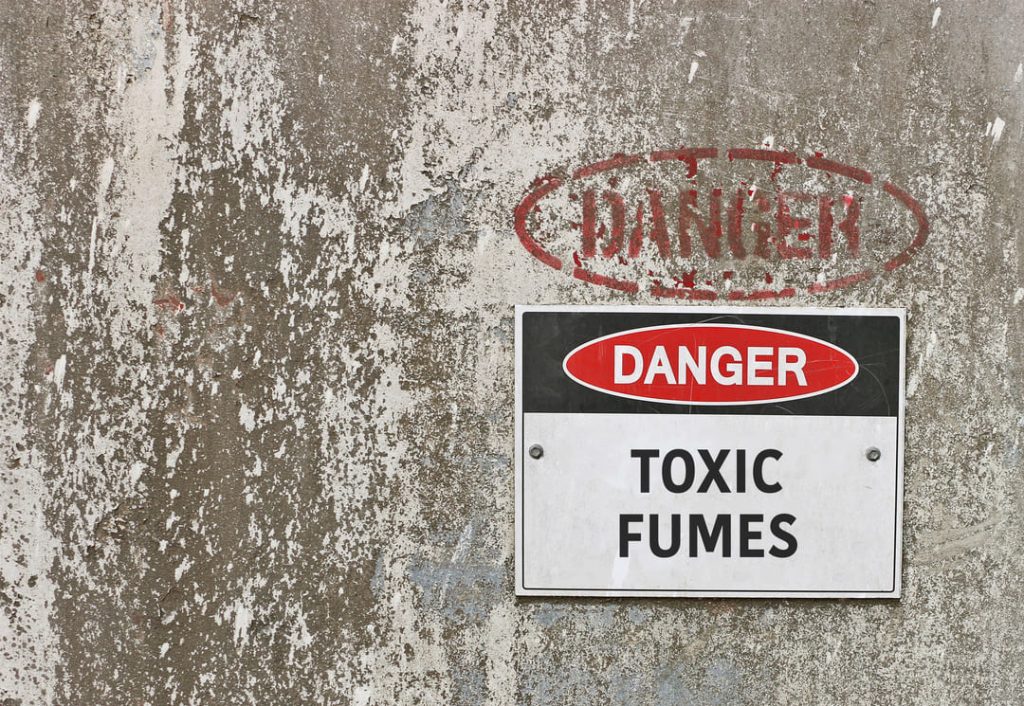Looking for Expert-Level VA Claim Answers?📱Call Us Now! 737-295-2226
The PACT Act expands VA health care and benefits for veterans exposed to Agent Orange, burn pits, and other toxic substances. If you suffer from disabilities because of these conditions, you may be eligible for PACT Act compensation.
But what does that mean, and do you qualify? You put your life on the line as a service member and deserve compensation for what you endured. It’s time to understand what you are entitled to.
This guide will cover the situations where you would qualify for PACT Act compensation, determine whether you are due back pay, and how much should be in your pocket monthly.
Let’s get started.
- What is the PACT Act?
- The PACT Act: A Lifeline for Veterans Exposed to Toxins
- What Does a Presumptive Condition for Toxic Exposure Mean?
- How Much is PACT Act Compensation?
- Can You Get Back Pay for the PACT Act?
- When Will I Receive My PACT Act Pay?
- Who Qualifies for PACT Act Compensation?
- Exposure to Burn Pits with a Diagnosed Condition
- Exposure to Camp LeJeune Toxic Water with a Diagnosed Condition
- Service Locations for Gulf War Presumptives
- Newly Added Radiation Presumptive Locations
- Exposure to Agent Orange with a Diagnosed Condition
- You are an Eligible Surviving Family Member of a Veteran
- Filing a PACT Act Claim
- How to Receive PACT Act Compensation for a Previously Denied Claim
- NEED MORE ASSISTANCE?

You DESERVE a HIGHER VA rating.
Take advantage of a VA Claim Discovery Call with an experienced Team Member. Learn what you’ve been missing so you can FINALLY get the disability rating and compensation you’ve earned for your service.
What is the PACT Act?
The VA PACT Act is a law that expands veteran benefits and health care to those exposed to burn pits and other toxic substances (including Agent Orange).
The VA PACT Act helps provide generations of veterans and their survivors with the benefits, care, and compensation they’ve earned and deserve.
The PACT Act is named after Sergeant First Class Heath Robinson, a combat medic, who died in 2020 at the age of 39 from lung cancer due to toxic exposure stemming from his service in Iraq.
The law’s full name is The Sergeant First Class (SFC) Heath Robinson Honoring our Promise to Address Comprehensive Toxics (PACT) Act, also known as Honoring our PACT Act of 2022.
When President Biden passed the PACT Act, the following changes were made:
- Expands and extends eligibility for VA health care for veterans with toxic exposures and veterans of the Vietnam, Gulf War, and post-9/11-eras
- Adds more than 20 additional presumptive conditions for Agent Orange, burn pits, and other toxic exposures
- Adds more presumptive-exposure locations for radiation and Agent Orange
- Requires the VA to provide toxic exposure screening for every veteran enrolled in VA healthcare
- Helps the VA improve research, staff education, and treatment related to toxic exposures
The PACT Act: A Lifeline for Veterans Exposed to Toxins
The Pact Act: A Lifeline for Veterans Exposed to Toxins (YouTube Video)

What Does a Presumptive Condition for Toxic Exposure Mean?
Generally, you need to prove your service caused your condition; however, in certain circumstances, the VA assumes (or presumes) your service caused a specific condition.
In these cases, they are referred to as presumptive conditions.
What are VA presumptives? If you have a presumptive condition, you don’t have to prove an in-service event caused your condition; instead, you only have to meet the service requirements for the presumption.
How Much is PACT Act Compensation?
Your PACT Act compensation depends on your condition and VA disability rating. For example, if you have a 60% VA rating for a disability caused by burn pit exposure, you will receive over $1,395 in tax-free monthly compensation. If you have a 100% VA disability rating, your monthly compensation is more than $3,800!
See the FULL 2025 VA disability pay charts
Can You Get Back Pay for the PACT Act?
You can submit PACT Act claims at any time; however, to receive PACT Act back pay, you must have submitted an “Intent to File” or applied for benefits by August 9, 2023.
Any claims submitted after that date will not receive any potential due payments between August 2022 and August 2023.
When Will I Receive My PACT Act Pay?
You must first be granted a compensable rating before receiving PACT Act compensation. You can check the status of your PACT Act claim online by signing into your existing Login.gov, ID.me, DS Logon, or My HealtheVet account.
You can sign up online if you don’t have one of the above accounts. In addition, you can contact the VA with questions regarding your PACT Act claim by calling 1-800-698-2411.
Who Qualifies for PACT Act Compensation?
The first step in receiving PACT Act compensation is determining whether you qualify. You can receive payment in several circumstances, so reviewing the following information carefully and determining where you fit in is essential.
Remember, for any of the below instances; you must also have a diagnosed condition listed under the presumptive list to qualify for PACT Act compensation.

Exposure to Burn Pits with a Diagnosed Condition
Burn pits were a common way to dispose of military waste at military sites. However, side effects of burn pit exposure lead to throat irritation, difficulty breathing, coughing, and eye irritation. See our compiled list of Military Burn Pit Locations.
You must meet one of the following qualifications to qualify for PACT Act compensation for burn pit exposure.
- You served on or after September 11, 2001, in Yemen, Uzbekistan, Syria, Lebanon, Jordan, Egypt, Djibouti, Afghanistan, or the airspace above these locations.
- You served on or after August 2, 1990, in the United Arab Emirates, Somalia, Saudi Arabia, Qatar, Oman, Kuwait, Iraq, Bahrain, or the airspace above these locations.
Exposure to Camp LeJeune Toxic Water with a Diagnosed Condition
If you served on Camp LeJeune between 1953 and 1987 and later developed any of the diseases under the presumptive list, you may be eligible for PACT Act compensation due to water contamination health issues.
To qualify, one of the following must be true:
- You served at Marine Corps Base Camp Lejeune for at least 30 consecutive days between August 1, 1953, and December 31, 1987
- You served at North Carolina’s Marine Corps Air Station New River for at least 30 consecutive days between August 1, 1953, and December 31, 1987
Service Locations for Gulf War Presumptives
If you served in any of the following locations on or after August 2, 1990, the VA presumes your undiagnosed illness is associated with your service.
- Afghanistan (airspace not included)
- Bahrain
- Egypt (airspace not included)
- Iraq
- Israel (airspace not included)
- Israel (airspace not included)
- Jordan (airspace not included)
- Kuwait
- Neutral zone between Iraq and Saudi Arabia
- Oman
- Qatar
- Saudi Arabia
- Syria (airspace not included)
- Turkey (airspace not included)
- The United Arab Emirates (UAE)
- The waters of the Arabian Sea, Gulf of Aden, Gulf of Oman, Persian Gulf, and the Red Sea
Note: The airspace above all of the countries and locations listed in this section is recognized unless specified that it’s not included.
Newly Added Radiation Presumptive Locations
The PACT Act added 3 new response efforts to the list of presumptive locations for radiation exposure. You may be eligible for PACT Act compensation if one of the following applies to you and you have a diagnosed condition.
- You were on one of the cleanup teams or nuclear response teams at the Enewetak Atoll from January 1, 1977, to December 31, 1980
- You were on one of the cleanup teams or nuclear response teams at the Palomares, Spain B-52 plane crash from January 17, 1966, to March 31, 1967
- You were on one of the cleanup teams or nuclear response teams at the Greenland, Thule Air Force Base B-52 plane crash from January 21, 1968, to September 25, 1968
Exposure to Agent Orange with a Diagnosed Condition
Agent Orange was a toxic, plant-killing chemical used by the U.S. military to control vegetation during the Vietnam War. The name Agent Orange comes from the orange band around the storage band.
You may be eligible for PACT Act compensation if you served in one of the following locations during the specific dates listed.
- Thailand (all US and Royal Thai military bases) from January 9, 1962, to June 30, 1976
- American Samoa or Guam (and territorial waters) from January 9, 1962 to July 30, 1980
- Johnston Atoll (off or on the ship) from January 1, 1972, to September 30, 1977
- Korean Demilitarized Zone from September 1, 1967, to Aug 31, 1971
- Laos from December 1, 1965, to September 30, 1969
- Cambodia (Kampong Cham Province, Krek, Mimot) from April 16, 1969 to April 30, 1969
- Vietnam and Blue Water Navy (within 12 mi) from January 9, 1962 to May 7, 1975
- C-123 Airplanes (ground maintenance, crew, flight of listed C-123s)
- Testing, Storage, or Disposal: Other veterans exposed to Agent Orange can qualify if they can show proof that they served where herbicides were tested or stored outside of Vietnam or were involved in the testing, storage, or disposal of herbicides in the US
You are an Eligible Surviving Family Member of a Veteran
If you are a surviving family member of a veteran, you may be eligible for the following PACT Act compensation benefits:
- A monthly VA dependency and indemnity compensation (VA DIC) payment
- A one-time accrued benefits payment
- A survivors pension

Filing a PACT Act Claim
The VA began processing PACT Act claims in January 2023, and if you haven’t previously filed a claim for presumptive conditions, you can do so in several ways.
- Filing a PACT Act claim online
- By mail to:
Department of Veterans Affairs
Claims Intake Center
PO Box 4444
Janesville, WI 53547-4444
- In person at a VA regional office near you
- With the help of a trained professional
How to Receive PACT Act Compensation for a Previously Denied Claim
You can submit a Supplemental Claim if you’ve received a denied claim, but the VA now considers your condition presumptive.
The VA will often contact you if this is the case; however, you shouldn’t wait for them to reach out because you don’t need notification from the VA to file a claim.
To help your claim, ensure you collect any relevant service records, medical records, and additional supporting documents to show toxic substance exposure led to your condition.

NEED MORE ASSISTANCE?
Most veterans are underrated for their disabilities and, therefore, not getting their due compensation. At VA Claims Insider, we help you understand and take control of the claims process, so you can get the rating and compensation you’re owed by law.
Our process takes the guesswork out of filing a VA disability claim and supports you every step of the way in building a fully-developed claim (FDC)—so you can increase your rating FAST! If you’ve filed your VA disability claim and have been denied or have received a low rating—or you’re unsure how to get started—reach out to us! Take advantage of a VA Claim Discovery Call. Learn what you’ve been missing—so you can FINALLY get the disability rating and compensation YOU DESERVE!



